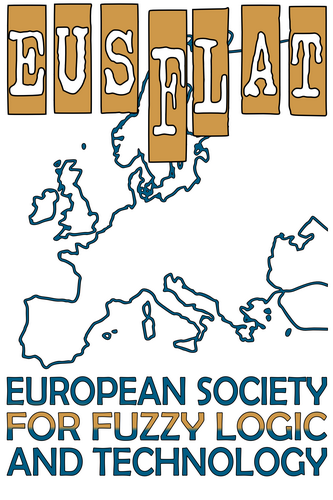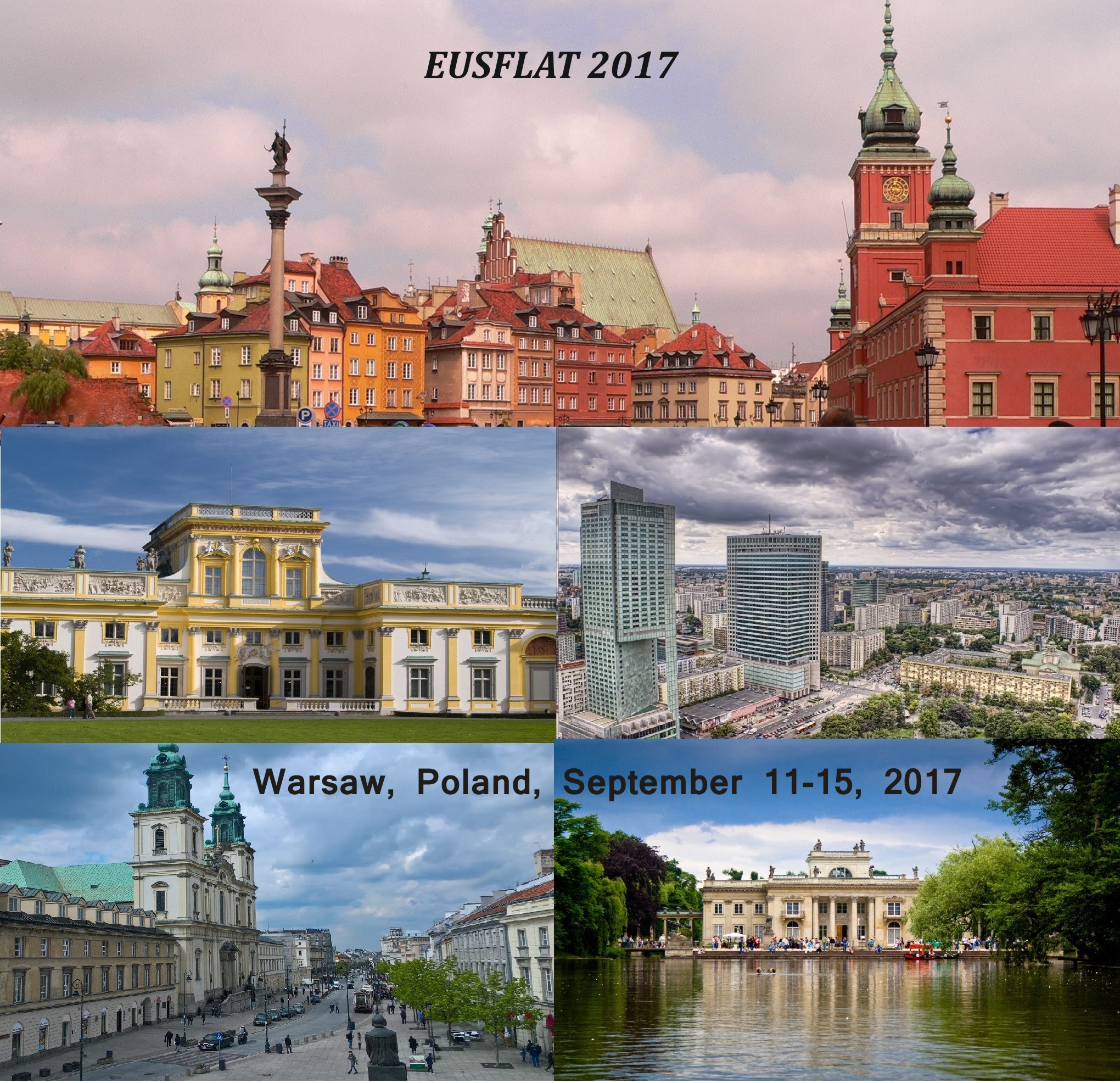
EUSFLAT 2017
The 10th Conference of
the European Society for Fuzzy Logic and Technology
Warsaw, Poland, September 11-15, 2017



The conference is organized by the Systems Research Institute, Polish Academy of Sciences in cooperation with several academic institutions commissioned by the European Society for Fuzzy Logic and Technology (EUSFLAT).
The International Program Committee consists of virtually all top people in the field, from Europe and beyond. It is supported by national organizing committees chaired by well known people in the field.
The main chairpersons of the Conference are:
The 10th conference of the European Society for Fuzzy Logic and Technology, EUSFLAT 2017, will take place in Warsaw, the capital of Poland on September 11th to September 15th, 2017. It will follow previous successful events in the series of conferences:
The aim of the conference is to bring together theoreticians and practitioners working on fuzzy logic, fuzzy systems, soft computing and related areas. It will provide a platform for the exchange of ideas among scientists, engineers and students.
Prospective authors are invited to submit original previously unpublished research papers written in English using Latex or Microsoft Word, of up to 12 pages long (one column). The contributions will be peer reviewed. All accepted papers will be published in a volume of the Springer's Advances in Intelligent Systems and Computing series, and submitted for indexation in the Thomson Reuters Conference Proceedings Citation Index - Science (CPCI-S). Please visit this series homepage for instructions on how to prepare the paper (Instructions for Authors, then Proceedings and other Multi-Authored Volumes); both Microsoft Word and Latex can be used.
During the conference various awards, notably the traditional EUSFLAT Awards (Best Student-Paper Award at EUSFLAT 2017 and EUSFLAT Best PhD Thesis Award) will be given.Potential applications are encouraged and should be submitted following the rules of the previous EUSFLAT Conferences (details to be announced).
The scientific program of the EUSFLAT-2017 will include various types of papers and presentations, notably state of the art and position, as well as technical papers, both on theory and applications, as well as plenary, keynote, session and poster presentations. Special events for young scientists and PhD students are also planned. The contributions will be organized in thematic streams which will include special and regular sessions. Moreover, some industrial and commercial exhibitions are also planned.
As it is always the case at the EUSFLAT conferences, we encourage and welcome the organization of special sessions, workshops, etc., in particular by EUSFLAT Working Groups. Prospective organizers are requested to contact the conference organizers.
| Full paper submission deadline: | tba |
| Notification of acceptance/rejection: | tba |
| Submission of final papers | tba |
| Early registration: | tba |
| Conference dates: | September 11 - 15, 2017 |
The topics addressed by the Conference cover all aspects of fuzzy logic and applications including, but not limited to: